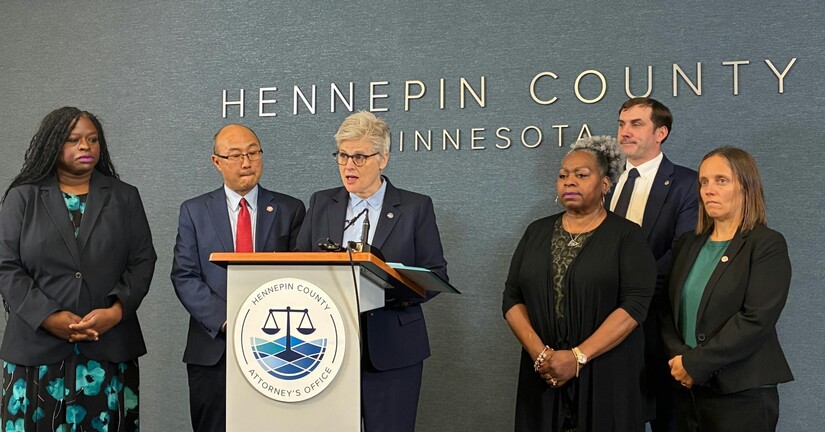Image


Minneapolis — Hennepin County is undertaking one of its most significant youth-justice reforms in years, expanding its juvenile diversion program to include a wider range of cases and placing new emphasis on early intervention, community-based accountability, and behavioral-health support. The move follows a sweeping University of Minnesota Medical School study that found youth who were diverted from the traditional court system were far less likely to reoffend than those formally prosecuted.
County Attorney Mary Moriarty said the data compelled her office to rethink long-standing practices. “When we divert young people, they are more successful — and far less likely to come back into the system,” she said at a recent briefing.
The University of Minnesota review examined more than 21,000 juvenile cases submitted to the county between 2016 and 2023. Its findings were stark: youth referred to pre-charge diversion recidivated at roughly 12 percent within a year, compared to nearly 47 percent among similarly situated youth whose cases proceeded through court.
The report, funded through a federal juvenile-justice grant, recommended widening diversion eligibility, strengthening partnerships with culturally responsive service providers, and adopting a developmental approach that views youth behavior in context — including trauma, mental-health needs, family instability, and socioeconomic stress.
In line with those recommendations, the Hennepin County Attorney’s Office will begin screening almost all juvenile referrals for diversion eligibility starting December 1. While the expansion opens diversion to more felony-level offenses, the county stresses that the most serious crimes — including murder, aggravated robbery, firearm-related carjackings and domestic-violence homicide — remain ineligible.

The diversion overhaul is part of a larger shift in Hennepin County’s youth-justice strategy. The county is simultaneously building a 13-bed youth stabilization center, designed to offer short-term residential assessment and treatment for young people with acute behavioral-health needs — many of whom might otherwise end up in detention.
The county also announced an expansion of its Youth Group Violence Intervention (YGVI) initiative, in partnership with Hennepin County Safe Communities. Modeled after the national Group Violence Intervention framework, the program engages youth referred by law enforcement before they enter probation or court, pairing them with trauma-informed outreach workers, mentors, and resource specialists who offer practical help and a path away from retaliatory or high-risk behavior.
Early versions of these interventions have shown promise. Under the county’s youth auto-theft intervention pilot, 81 percent of participants had no new charges as of May 2024, and youth auto-theft referrals dropped nearly 50 percent year-over-year.
The reforms come at a time when rising rates of certain juvenile offenses — notably carjackings and armed robberies — have heightened anxiety in some Minneapolis-area communities. Critics, including some law-enforcement officials and victims' advocates, argue that broadening diversion sends the wrong message and may fail to deter serious violence.
Moriarty counters that the data does not support a punitive-first model. “High recidivism rates — sometimes above 50 percent — are simply not acceptable,” she said. “If we want safer communities, we must intervene more effectively, not just more harshly.”
Supporters say the plan also aims to reduce racial disparities that have long characterized Minnesota’s juvenile-justice system. Black, Indigenous and other youth of color are disproportionately referred to court, often for lower-level offenses tied to instability or unmet mental-health needs. Diversion, advocates argue, offers a chance to interrupt that cycle.
County officials say the expanded diversion program will be closely monitored, with regular public reporting on outcomes. They also stress that diversion is not a dismissal of accountability but a shift toward restorative justice, mentorship, education, and family support — measures that data show are more likely to keep young people from reoffending.
As Hennepin County prepares to implement its new screening system, the coming year will test whether a data-driven, developmentally informed approach can reduce crime, protect public safety, and provide young people with a path toward stability — rather than deeper entanglement with the justice system.